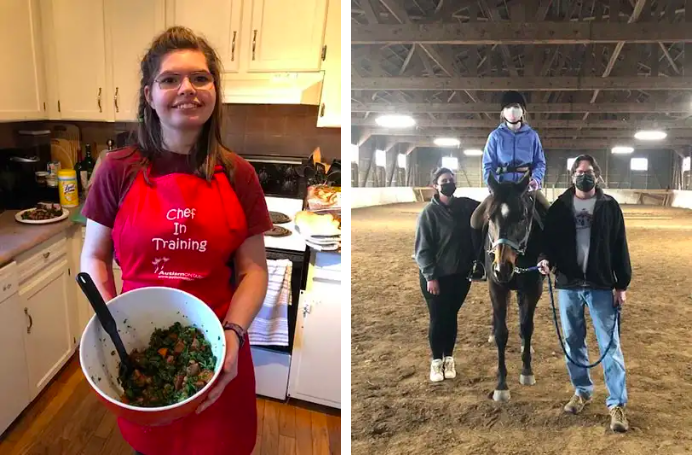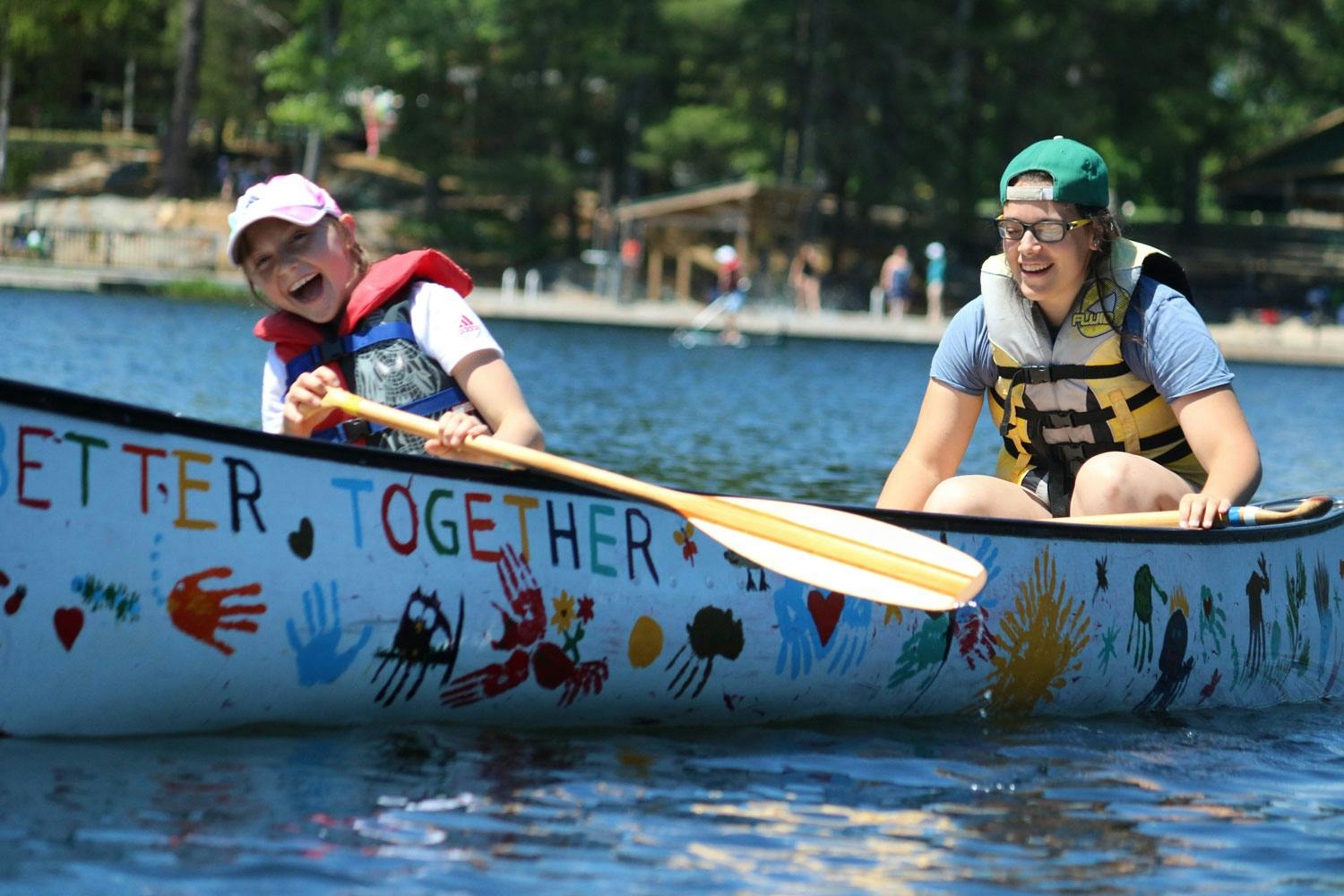Another Hard Summer for Special Needs Kids
Children with special needs look to a second summer of less-than-ideal virtual activities.
Brooke Huxtable has been home for the better part of a year and misses her cheer mates. The teen from Mississauga, ON, has multiple diagnoses — including autism, epilepsy, and a hearing and vision impairment — and is a member of the first special abilities team to ever represent Canada at the International Cheer Union World Cheerleading Championships. Her team won the bronze in 2018 and a silver in 2019, and were training for the 2020 competition when Covid-19 shut the world down.
But with many summer camps either delaying or cancelling their openings, it’s looking like Brooke may spend another summer at home. With the ongoing pandemic, emergence of variants, and the slow-to-start vaccine rollout, most in-person camps and recreational activities for kids with special needs stand to be cancelled or heavily modified.
For families with children and youth on the autism spectrum and with considerable health issues, virtual programming has been a mixed bag. Just like with virtual schooling, some kids have found it hard to connect with instructors and teachers, while others have had the time to breathe and learn important life skills in the safety of their homes.
Covid has been tough on all kids, but our kids with special needs need that social interaction so much more.
“Covid has been tough on all kids, but our kids with special needs need that social interaction so much more,” says Brooke’s mom, Caroline Huxtable. “But finding a program for our children, where they are supported by trained staff in an inclusive environment, where they aren’t judged and where their potential and their talents are encouraged, is quite challenging. Cheering was great for her in all those aspects, so it was a blow when she couldn’t do it anymore.”
In the past year, Brooke bonded with her family members over a variety of virtual activities like yoga, art, and cooking. She especially enjoyed the Zoom cooking sessions conducted by Chef Anthony Go. Before the pandemic hit, he had been conducting in-person cooking classes for individuals with a developmental disability as part of a program developed by Autism Ontario and the non-profit Big Spoon Lil Spoon.

Despite losing out on many activities during the Covid-19 pandemic, Mississauga teen Brooke Huxtable has been able to participate in online cooking classes and resume therapeutic horseback riding lessons.
When day programs were shuttered, Go — who lives as an adult with autism spectrum disorder — switched to online cooking classes, which will also be offered this summer.
“Being able to participate in Chef Anthony’s program for Brooke has been hugely beneficial, because she’s dealing with our kitchen and the tools in it,” says Caroline, a registered early childhood educator. “It helps to tie in what she learns at cooking programs outside. She can translate these skills to her real, daily life. It’s been an eye-opener for me as well — I’ve realised that I should be involving her more in prep at home.”
Brooke — who is usually in a special classroom at her high school — did get a bit of a break from homeschooling, though. She was able to attend school for a few months at the beginning of the year, and her cheer teammates and coach met a few times in person for mental health chats. She has also resumed her therapeutic horseback riding lessons, which not only help her with physical therapy but also with the much-needed opportunity to connect socially with the staff and volunteers at the stable.
Medical experts have emphasized the need for relaxation and recreation for kids already stressed with having to flit between online and in-person learning for over a year now. Additionally, virtual camps for kids on the spectrum have their unique challenges. Younger kids find it hard to focus on instructions and often need to be redirected, resulting in frustrated kids and instructors alike.
“Recreational activities for children with developmental disabilities — when conducted in the right environment — have tremendous positive impact,” says Dr. Patrick Jachyra, a postdoctoral fellow at the Azrieli Adult Neurodevelopmental Centre at Toronto’s Centre for Addiction and Mental Health. “The key, however, is constructing environments that set children up for success, as recreational activities can also be a stressful experience if, for example, the social and physical environment are not tailored to the needs of children with developmental disabilities.”
Recreational activities can be a stressful experience if the social and physical environment are not tailored to children’s needs.
Jachyra’s research examines how physical activity impacts the mental health of individuals with developmental disabilities across the lifespan. He cautions that virtual programming is not a one-size-fits-all solution. “For some kids on the spectrum, virtual recreation might be an option for those who are comfortable with being in a virtual environment, and have the ability to follow along with all activities and events,” he explains. “For others, virtual environments might be an option if they have the appropriate support such as a parent or caregiver who is close by to potentially help out if needed, along with breaks structured into the activities.”
Families of kids with developmental disabilities aren’t the only ones impacted by cancelled or transformed summer camps this year. Children with cancer have long found joy and connection at in-person camps like those conducted for years by the privately funded, nonprofit Camp Ooch and Camp Trillium.
This past year, these camps moved to a virtual platform, which had benefits like making camp programming available to kids in hospital who wouldn’t have been well enough to attend in person. But actually being with kids who share a diagnosis was invaluable, according to Letitzia Serbanescu, mother to an 8-year-old with cancer. Serbanescu spoke recently at a panel conducted by the camp to discuss strategies and safety measures for this summer.
When she went to camp, it was an eye-opener for her. She felt she wasn’t alone.
“My daughter, when she was 6, two years ago, hadn’t really seen too many kids at the hospital, she was in her room a lot,” says Sebanescu. “She went through hair loss and hadn’t seen too many kids going through the same, so it wasn’t good for her self-esteem. But when she went to camp, she met and mingled with kids at different stages, and it was an eye-opener for her. She felt she wasn’t alone.” The camp is hoping to organise “family retreat style” in-person overnight camps, where families will move around in bubbles and participate in socially distanced activities.
One of the camp’s highlights is for staff to do a cheer when families arrive.This year staff hope to do it, albeit masked and safely apart.
Meanwhile, Caroline is also hoping for some cheer: specifically for Brooke to reunite with her cheermates, and ideally participate in some summer camps so they can both get a break. Stretched thin from being Brooke’s caregiver and teacher rolled into one, while managing the house and working at her job — Caroline just isn’t excited about summer this year.
“I usually look forward to summer, but with no ability to make arrangements or plan anything, it is just more of the same,” she says. She is waiting to hear from an epilepsy camp among others, but is aware that this year it will look vastly different. “Fortunately, Brooke just got her first vaccine on May 24th. So I am feeling more comfortable about her attending, but still expect a high level of precautions. Brooke is still homeschooling, so it will be a very long summer if kept home through till September… and I am getting Zoomed out!”
